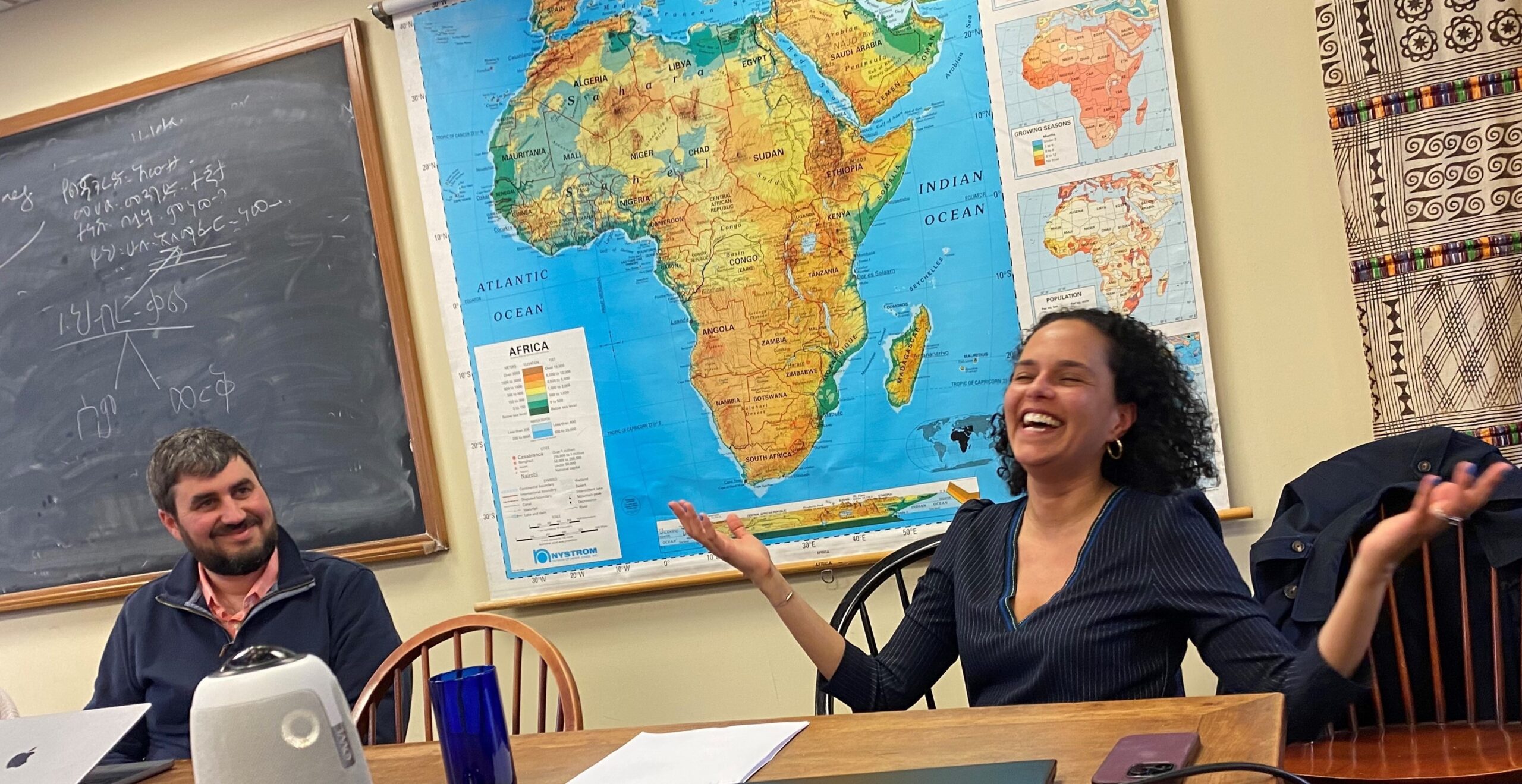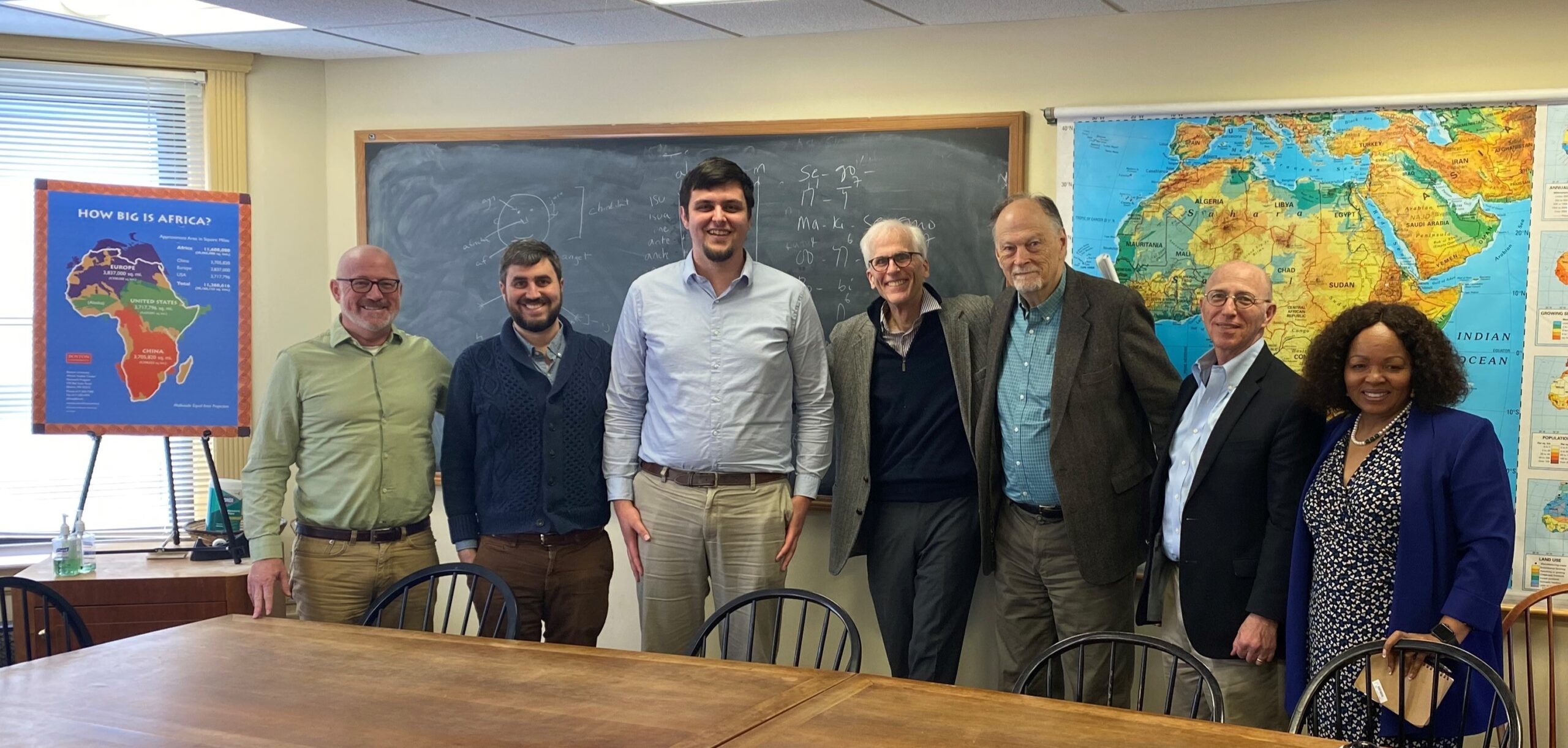Explorations of Language, Power and Art at Pardee’s African Studies Center

The African Studies Center at Frederick S. Pardee School of Global Studies recently hosted two insightful seminars that examined the complex relationships between language, power, art and identity in Africa’s history. On April 22nd, Dr. Joshua Castillo, a Boston University History PhD, presented his research on the use of the Lingala language as a means of asserting and wielding power over the recent history of the Democratic Republic of the Congo. Drawing from extensive field research in Lingala, Swahili, Ciluba and Kikongo, Castillo mapped out how President Mobutu Sese Seko employed Lingala to amplify his authority, while Laurent Kabila later declared Swahili as the “language of power.” Castillo also explored how ordinary Congolese people strategically shifted language identities to ensure safety from security forces. The nuanced presentation sparked discussions on how languages and accents influence power dynamics, politics and social mobility across Africa.
On April 22nd, Dr. Joshua Castillo, a Boston University History PhD, presented his research on the use of the Lingala language as a means of asserting and wielding power over the recent history of the Democratic Republic of the Congo. Drawing from extensive field research in Lingala, Swahili, Ciluba and Kikongo, Castillo mapped out how President Mobutu Sese Seko employed Lingala to amplify his authority, while Laurent Kabila later declared Swahili as the “language of power.” Castillo also explored how ordinary Congolese people strategically shifted language identities to ensure safety from security forces. The nuanced presentation sparked discussions on how languages and accents influence power dynamics, politics and social mobility across Africa.
Just a week later, on April 29th, Yale Art History Professor Cecile Fromont, soon headed to Harvard, presented “History and the Fetish: The Delcommune Nkisi as Historical Object” as part of the Walter Rodney Seminar series. Fromont traced the journey and significance of an Angolan spiritual object looted by Belgian colonialist Alexandre Delcommune from Boma. The object, a melding of African and European materials itself representing intense cultural exchange, resides in Belgium’s Royal Museum for Central Africa. Delcommune recognized its power and seized it to overcome local kings as Belgium asserted control over the Congo for King Leopold II. Discussions surrounded the meanings of power objects, restitution of looted art, and legacies of slavery and colonialism.
Earlier in the semester, the Center’s Walter Rodney Seminar Series also featured Dr. Christopher Graham discussing his analysis of eco-villages and media’s role in regreening initiatives across contrasting development paradigms in Africa. Dr. Christine Sciacca delivered a fascinating talk on April 8th about nearly 2000 years of Ethiopian art and cross-cultural exchange, in conjunction with her “Ethiopia at the Crossroads” exhibit at the Peabody Essex Museum.
The interdisciplinary seminars highlighted the African Studies Center’s role since 1953 in promoting rigorous research, language study and diverse programming engaging the arts, humanities, social sciences and more to build excellence in African studies. The Center supported a student visit to Sciacca’s exhibit, providing opportunities beyond the classroom.
The African Studies Center (ASC) at Boston University is one of the nation’s oldest leaders in promoting African language and area studies since its founding in 1953, with federal funding from the US Department of Education as a Title VI National Resource Center.
As a center for excellence for researching, learning, and teaching about Africa, the ASC provides opportunities for students and scholars across the arts, humanities, social sciences, and natural sciences to pursue rigorous academic study and research engaging Africa, to learn African languages, and to participate in diverse programming outside of the classroom.